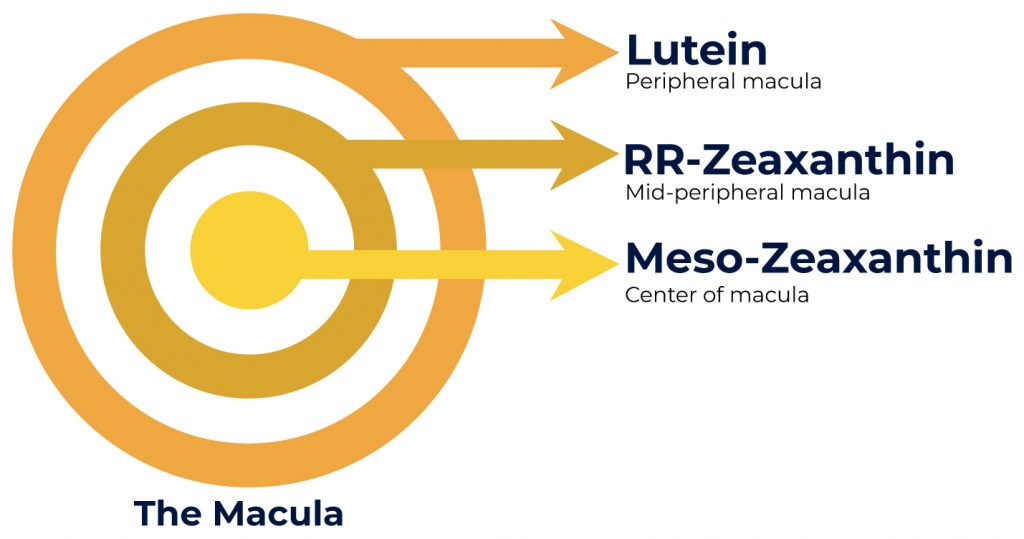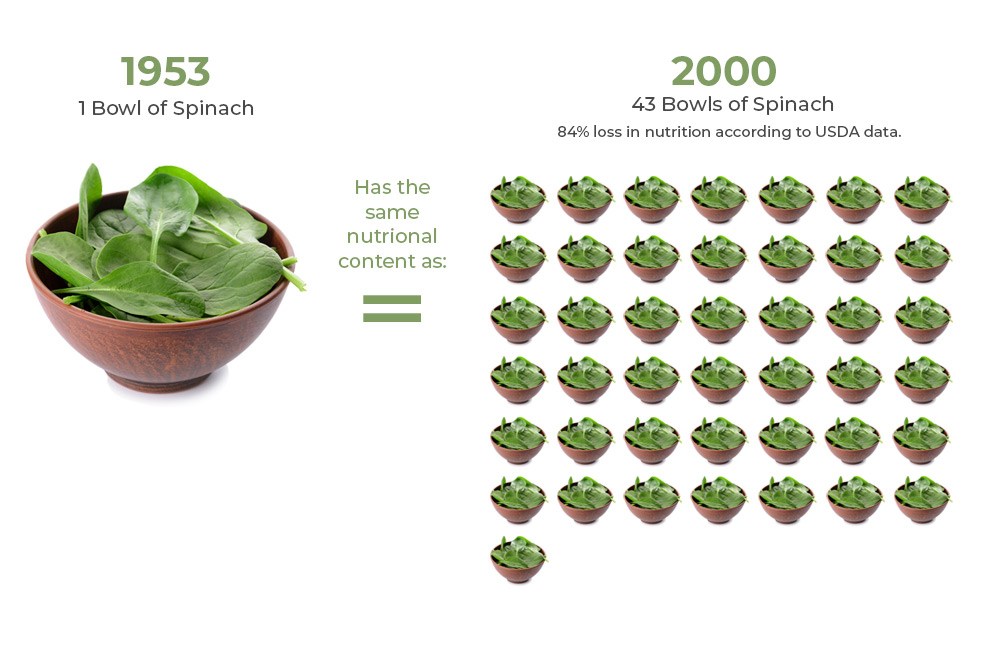While plants are able to make carotenoids de novo, humans must obtain them primarily through plant-based foods. Of the 750+ carotenoids found in nature, 40 to 50 are found in the human diet and approximately 18 are found in human blood, of which α-carotene, β-carotene, lycopene, lutein, zeaxanthin, and β-cryptoxanthin are the most common. Remarkably, the central retina (an area know as the macula that mediates central and colour vision) concentrates only 3 carotenoids lutein, zeaxanthin and meso-zeaxanthin. Meso-zeaxanthin is the strongest antioxidant of the 3 and is essential to ensure we have a full protective pigment at the macula.

Of note, a global impact on the plant carotenoid concentrations will be consequential for human health. Work by Nolan and Loladze discusses the impact of rising C02 on carotenoid density in plants and consequently in human diets which represents a major concern for human health and function.

Even standard healthy diets are lacking in sufficient amounts of the carotenoids required to serve the many carotenoid reservoirs in the body (body fat, for example). Therefore, specialized tissues such at the retina and brain that require the carotenoids to protect against oxidative damage are venerable because of a deficiency of these antioxidant and anti-inflammatory nutrients. Thankfully, the carotenoid formulations now available from memoreyez offer purified and scientifically validated formulations to address this deficiency and protect the health and wellness of your customer.
COMING SOON

The information contained in this website does not constitute a recommendation or guidance for decisions concerning the purchase, use or application of products and does not relieve the user of the product of the obligation to undertake its own suitability, performance, quality testing or country specific regulatory approvals. Stauber Performance Ingredients, Inc., including its affiliates (“Stauber”) makes no representations or warranties, either express or implied, of merchantability, fitness for a particular purpose, completeness or accuracy of the information or the products to which the information refers. Stauber shall have no responsibility for any act or omission taken by relying on or using the information contained in this website and in no event shall it be liable for any damages resulting from reliance on or use for any purpose of this information. Without limiting the above, Stauber shall have no responsibility for any act or omission of any other contributor. Readers should take specific advice from an appropriately qualified professional when dealing with specific situations. Nothing in this website is intended to be an offer which is capable of acceptance or an inducement of any kind. Descriptions of, or references or access to other publications within the website do not imply endorsement of those publications. The information contained in this website could contain technical inaccuracies, and changes to the information may be made at any time without notice.